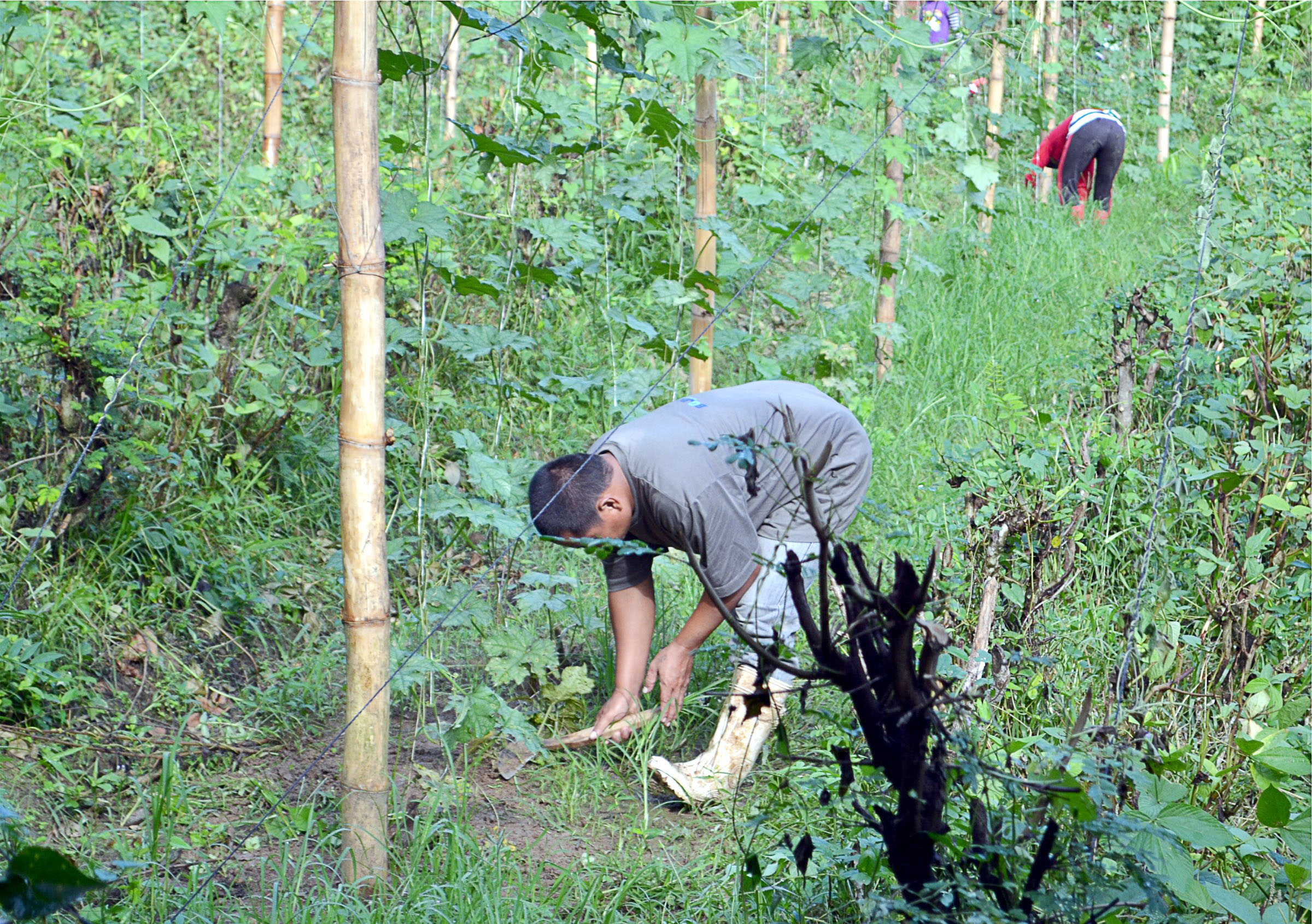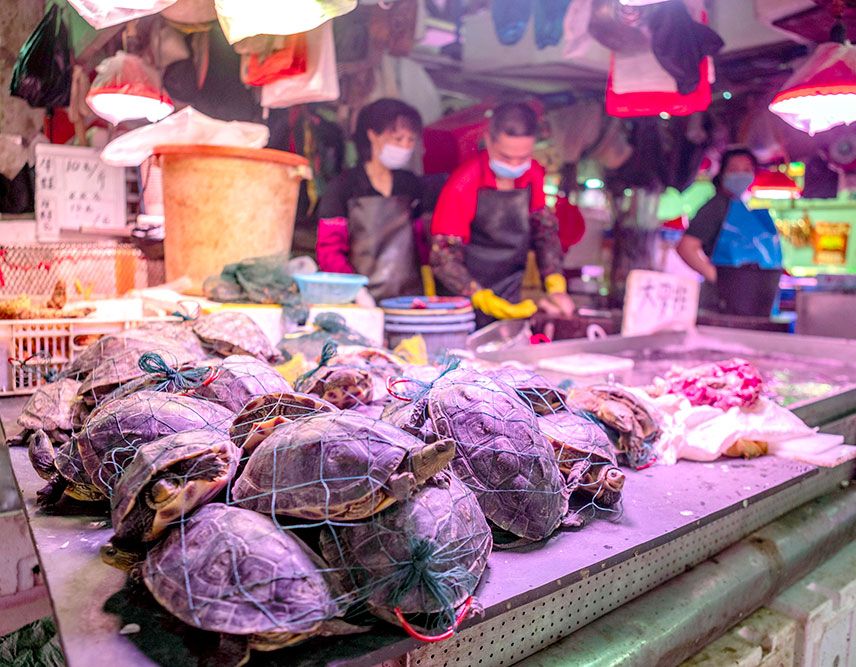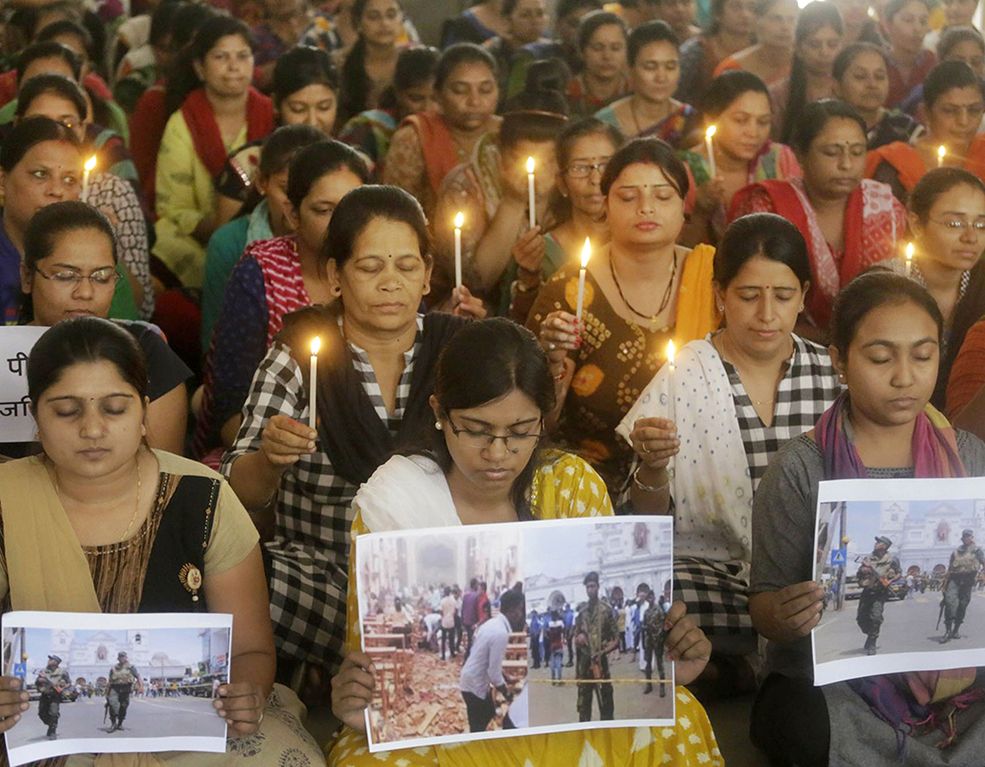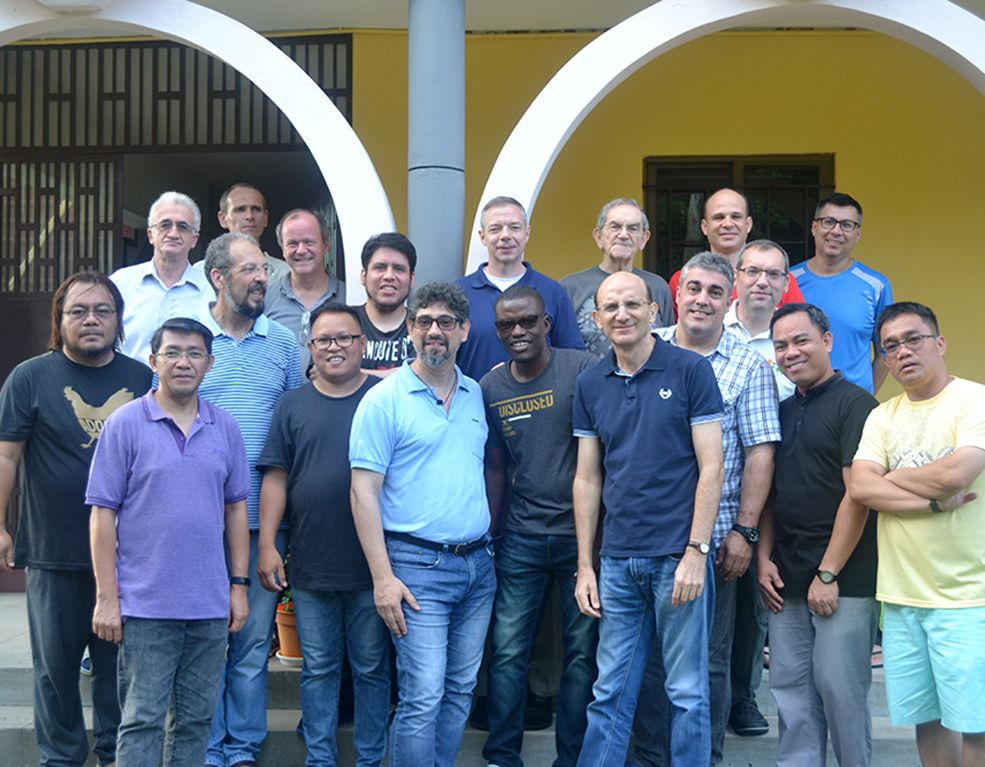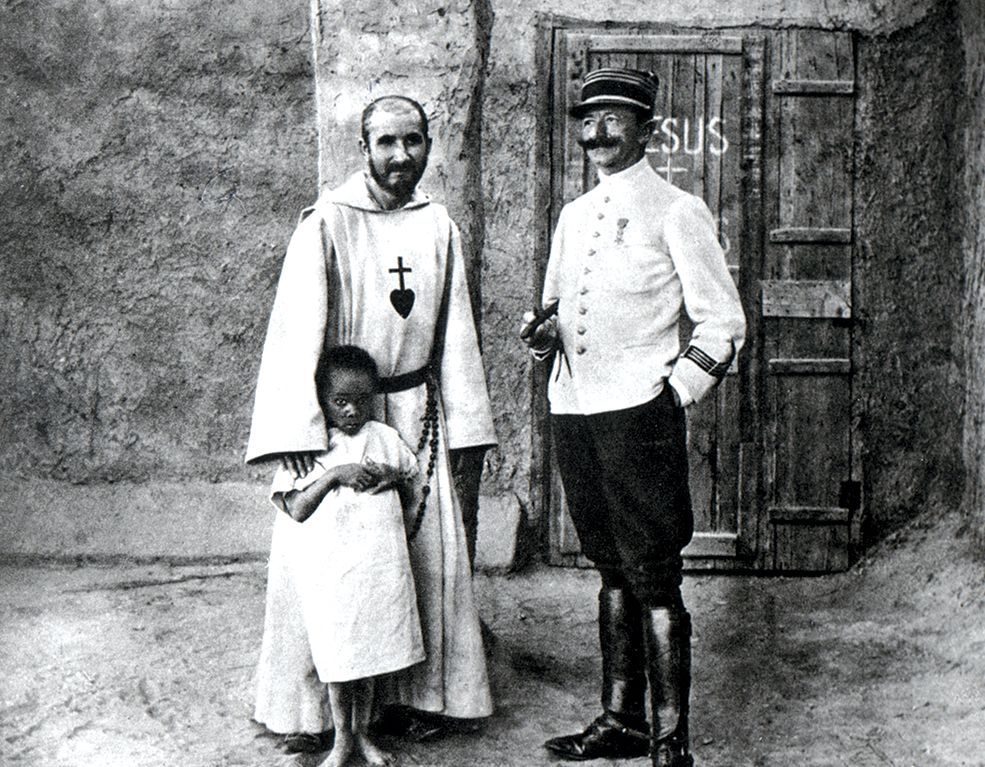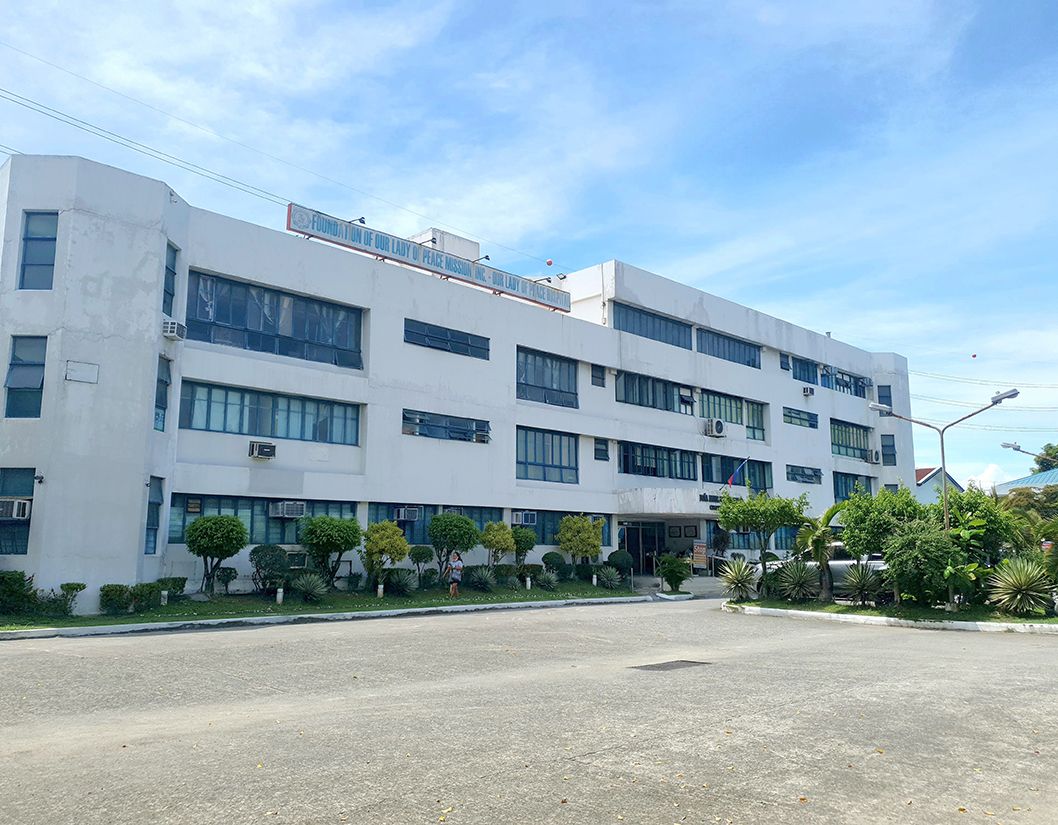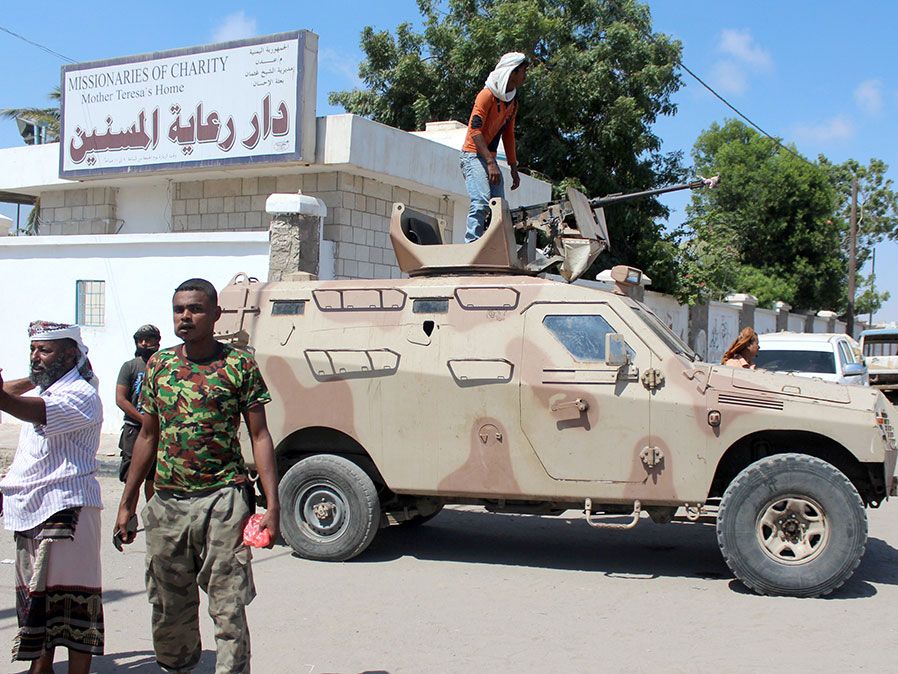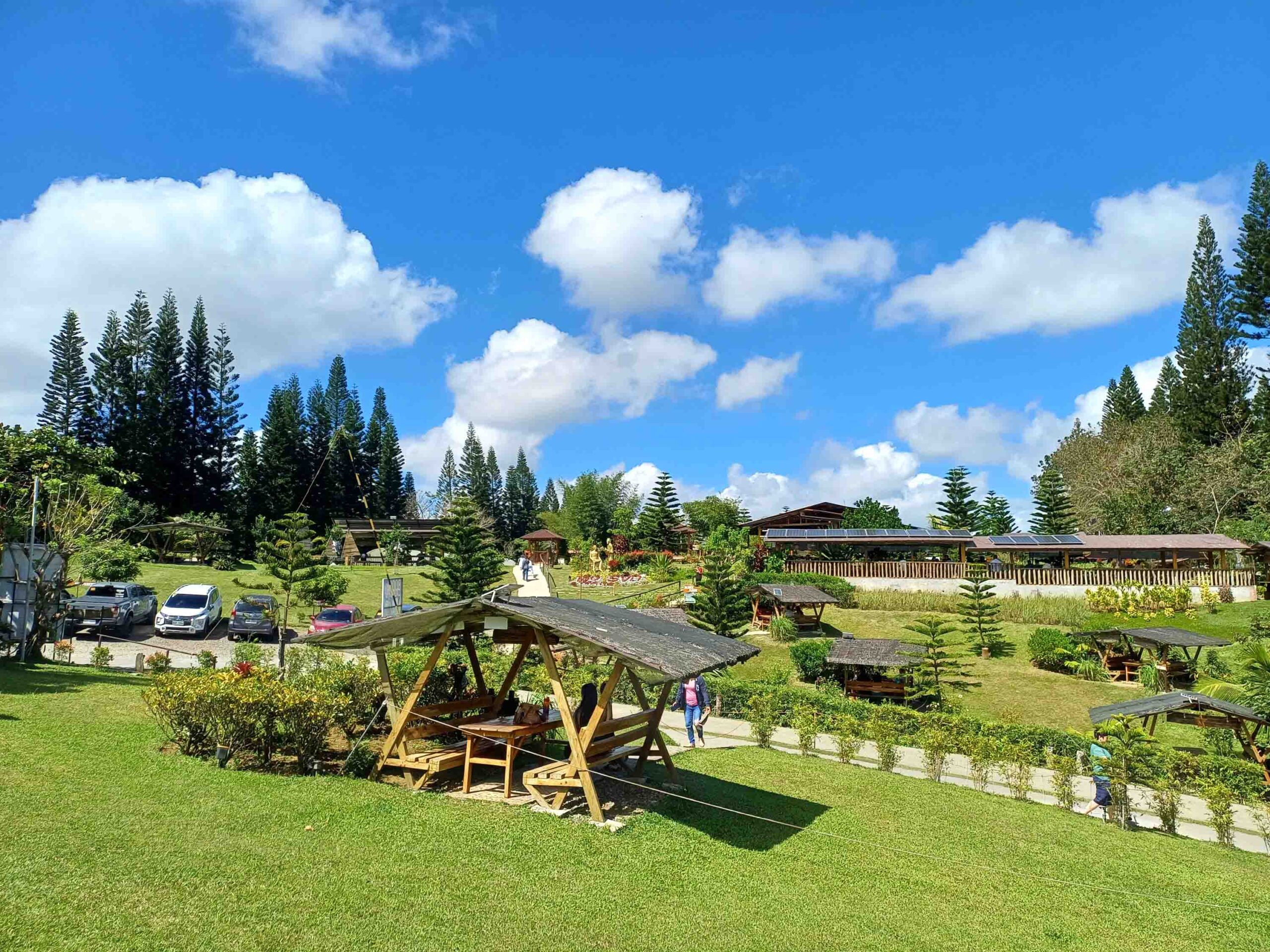I met the Comboni Missionaries in 1984. At that time, the Comboni magazines made us dream of a new way of being missionaries. Their brave denunciations, their unmistakable standpoints stirred our desire to work together to build a really new and more brotherly society, where spirituality doesn’t turn into an esthetic and anesthetic instrument at the service of the prevailing culture, but a communion with the Risen Christ, present in the people who are crucified by social injustices.
My encounter with the experience of the Latin American and especially the Brazilian Church, through the GIM (Gioventú Impegno Missionario: Committed Missionary Youth) of Venegono was also another fundamental fact. To learn of an Episcopal Conference capable of putting the poor and the last ones at the center of evangelization stimulated us to discover new forms of service and action. For instance, the Conference uses fraternity campaigns that yearly propose a social theme to deepen and, at the same time, facilitate the synthesis between faith and life. This opens a way for a political participation of the Church in the service to the marginalized.
These “seeds,” cultivated over several years of my theological and psychiatric formation, have today become fruits in the Bom Jardim (Good Garden) Communitarian Mental Health Movement (MSMCBJ). The Comboni Missionaries started their work at Fortaleza, the fifth major Brazilian city, with the formation of a group of Basic Ecclesial Communities (CEBs). The Bom Jardim Pastoral Area, an alternative proposal to the traditional parish model, has been a workshop of experiences that have stimulated the community leaders to take their responsibility as evangelization protagonists.
The burden of poverty and depression
The activities of MSMCBJ started by welcoming and listening to people troubled by psychic and existential problems. The aim was to transform suffering into growth and wisdom of life. Mental health of people is one of the problems that, at present, worries the World Health Organization (WHO). Depression is considered the fourth most debilitating illness in the world and it is foreseen to become the second by 2030. The exponential growth of the use of psychotropic medicines, especially against anxiety, is another worrying factor.
The economic, ecological and value crises produce a substratum that favors the development of several mental disturbances. The absence of adequate structures for accepting and treating such afflicted persons magnifies the size of the problem. Many people who have mental health disturbances may easily become prey to certain religious institutions and sects that promise spiritual healing against the devils who are thought to be responsible for the said diseases.
How can we face the challenge of this new category of excluded people? How can we conjugate the psychiatric and psychological knowledge with the dimension of a spirituality that liberates and doesn’t close in by the fear of being possessed by a malign spirit? How can we stimulate the community to take an active part within the context of the public policies and convince the authorities of the urgency of the problem that requires adequate answers and structures? To all these questions we try to give an answer through our work. We organize prevention and therapy services for the poor in the outskirts of Fortaleza, where the environment is characterized by very worrying social indicators – violence, exclusion, unemployment and drug addiction – which are among the highest in the city.
Listening to the people, we discovered that the biggest problem was internalized poverty. People lose their sense of life, turn inward, become self-absorbed and refuse to believe that things can get better, that they have the resources to change a crisis into an evolution. Self-esteem is reduced to the minimum and leaves room for graver symptoms that can turn into a terrible psychiatric disease like depression. The worst thing is when they are convinced that this is God’s will, that they have to pay for mistakes committed in the past. Some religious experiences end up confirming these distorted perceptions, changing the persons into subjects spiritually dependent on this and that sect.
A bio-psycho-socio-spiritual vision
To welcome and listen to these people who are looking for help, we have organized communal therapy groups: a simple and effective technique initiated by Brazilian psychiatrist Adalberto Barreto. These groups have become a precious instrument in the quest of a new mental health experience based on a systemic communitarian approach. The systemic perspective sees the problems as the result of personal, family and social interaction and utilizes a bio-psycho-socio-spiritual vision of the human being.
The person is part of the problem but also of a solution that is not offered as pre-packaged by experts. The therapeutic agent doesn’t give advice, doesn’t judge. His main task is to favor a process of conscientization of the person’s potentials, helping to choose the best route in order to come out of the crisis. Crisis is not seen only as a destructive danger, but also as an opportunity for growth and improvement. It is a maieutic (serving to bring a person’s latent ideas into clear consciousness) pedagogy that becomes the presupposition to help the person in building his/her own autonomy, without depending on whoever thinks of having the truth in his pocket.
The word therapy is originally Greek (therapeia) and signifies to serve God. It comes from the verb therapeuin – that is translated as Servant of God, the one who is in the service of God. The Essenes of Qumran and the Desert Fathers were already using therapeutic techniques to re-establish people’s balances and harmony. In all cultures and traditions, we find figures like shamani, curanderos, medicine man who use different techniques for the cure of psychological illnesses. Generally, it is a question of re-establishing a balance between the natural and supernatural forces, making use also of herbs and alternative medicines of various kinds, associated with sacred rituals.
With this perspective, our experience was born and grew; we became aware of the urgency of joining spirituality with psychiatric sciences at the service of the health and welfare of the poorest and most abandoned people. We started communal therapy groups, self-esteem redemption groups, bio-dance and family constellations of art-therapy groups. We added professional courses, university preparation, ecological conscientization and family therapy courses. We promoted collaboration with the different local universities in order to favor a more humane formation and facilities for prisoners who could find it a possible alternative to punishment. We fostered participation in the different local issues concerning problems of women, street children, indigenous people and related public policies. We initiated a project on drug addiction and child labor prevention (engaging children and adolescents from 7 to 14 years of age).
Some life stories
At present, we have about 50 operators and 100 volunteers, some of whom come from abroad. More than 2,000 people take part in the various activities every month. Life experiences express better than words so here are some of the stories of the people involved in the Bom Jardim Communitarian Mental Health Movement.
– ZIZI. “I started attending the activities of MSMCBJ many years ago. I was very depressed because of my mother’s death. For several weeks, I locked myself inside the house. I wanted to die. Life for me had no more sense. I tried even to kill myself more than once. When I was invited to take part in the activities of the movement, I did not believe that it would be possible for me to rise above the anxiety and despair that tortured me. Everybody was telling me to have faith, to pray, to ask God the strength to overcome, but I only felt a great desire to end it all. The communitarian therapy and the self-esteem group have helped me to see that other people had the same problems and that it was possible to overcome them.
After some months of therapy, I realized that my real problem was not only the pain resulting from the loss of my dear mother. I discovered that the cause of my anxiety was much deeper. I started remembering some events during my childhood that marked my life. I was an adopted child and, unfortunately, I was sexually abused by some family members. At first, I felt like it was the end of the world for me. I was full of anger and disgust. Then, little by little, with the help of the group, I managed to stand up. I discovered that I have talents, potentialities. I started believing that everything could be different.
I was illiterate so I did some studying. After finishing elementary and middle school, I worked as a volunteer at MSMBJ. In the beginning, I helped watering the plants, the flowers, and other work in the garden. Then, I took a massage course. At present, I am a massage therapist and earn my salary by helping people who are looking for relief from stress. Now, I am a new person who feels her self-worth and is self-sufficient. I thank the Lord for having helped me find a new birth.”
– JUJU. “When I first got to know the work of the movement, I was desperate. My husband had abandoned me and left me alone with seven children. I was barely surviving and my situation was sad and miserable. I started joining the self-esteem group and discovered that I was not only the sum of my own problems… After all, I had strength, bravery, and the desire to grow. I discovered that I could work and I was gifted as a cook. People appreciated me for what I am, even if poor and abandoned by my husband. At present, I work for MSMBJ and I feel like new. I feel life is worth living. Everyday, I learn something new and beautiful, and I try to pass it on to my children. When I see somebody coming in desperate and aimless, I am able to share with him/her my experience. I tell them: “I was once like you, but with the help and strength of the group, I managed to live again. You also can make it!”
– ANA. “How many years have passed!… At that time, in 1996, I was a mother of a family, and a volunteer in an organization that was helping undernourished children. I was deeply unsatisfied. I did not believe in myself. I was very shy, insecure and I would never have imagined the great transformation that was going to happen in my life. Back then, I was like a dried-up chrysalis, not believing that it could become a beautiful butterfly. I took part in the first formation course for communitarian therapists and that experience changed my life. I started studying and earned a degree in pedagogy. Then I went on to pursue two specializations: one as a holistic and the other as a family therapist. I became responsible for the center for psycho-social attention of Bom Jardim and, at present, I am responsible for the MSMBJ formation. During these years, I have come to the awareness that a different world is possible, starting from myself. I am still shy and at times insecure, but this doesn’t stop me from being a person who takes great responsibilities and helps other people to grow and to be the best of themselves.”
– DINO. “I met the Comboni Missionaries many years ago. They made us dream of a different Church that commits itself with the poor and abandoned people, thus fulfilling Comboni’s charism of Saving Africa by means of Africa as “Promoting Life in Brazil by means of the Brazilians.” The example of Comboni Father Ezekiel Ramin, a young man who was killed by the landowners for his commitment on behalf of the exploited peasants, made us reflect and helped us to continue our journey of integral liberation of the human being.
I always used to commit myself, with young people, to different formative and pedagogical activities. I was working in a bank and my work appeared to me as too distant from the dreams of a different life and a better world. With MSMBJ, I started a journey of self-knowledge and I found the courage of changing my life, leave a type of work that was deemed “secure” and start an adventure that continues up to now and make me happy and certain of having made the right choice. I started studying and I got a degree in Physical Education. I also did a specialization in Bio-Dance which is one of the techniques of the Communitarian Systemic Approach, a new therapeutic perspective that MSMBJ has built up in these years of activity. Bio-Dance stimulates us to a bio-centric vision, to respect life in all its dimensions. I am also the MSMBJ administrator and I manage to use my technical expertise with cheerfulness. At present, I am no longer computing for a bank but I help our organization to manage our funds in the best possible ways and I am happy with my work.”
These short testimonies are just a few among the thousands that we have collected during our working years.
Pray for a young Church
In the end, it is important to share the experience we are implementing in the indigenous reservation of Pitaguary of Maracanau. We have started a new project on drug abuse prevention with the children and adolescents of this indigenous group. Learning their culture is helping us to re-discover the importance of respecting nature and the necessity of fostering a loving attitude towards all the living species.
Our planet Earth is calling us to waken up to the realization that we cannot continue our way of doing things. According to specialists’ calculations, if we continue to exploit and pollute our natural resources at the present rate, we would need two earths in order to satisfy our needs in 2025. The signals are clear: the climatic variations, the greenhouse effect, the increase in sicknesses due to environmental pollution don’t leave us a choice to dilly-dally.
We must start now to re-establish a broken equilibrium, shattered by wild exploitation on behalf of a few, that generates an increasingly more serious social apartheid. This provokes mental imbalance and invites us to reflect on mental ecology. Cardinal Carlo Maria Martini, former Archbishop of Milan, in his marvelous book: “Jerusalem Night Conversations,” invites us to pray for a young Church… This is how we perceive ourselves and… we keep on dreaming.


